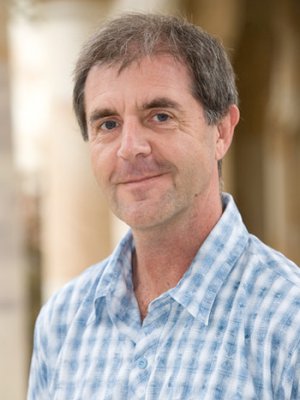
Researchers at UQ's Institute for Molecular Bioscience (IMB) have received over $3 million from the Queensland Government to combat diseases including type 2 diabetes and to study sugarcane soils to advance environmentally sustainable food and bioenergy production.
Professors David Fairlie and David Craik will lead a team of researchers awarded $2 million of funding to build a research partnership with Pfizer, the world's largest pharmaceutical company.
They will use Queensland technology to develop improved treatments for type 2 diabetes, obesity and cardiovascular disease.
"These interlinked diseases affect hundreds of thousands of Queenslanders, including disproportionate numbers of indigenous Australians and workers in the mining industry," Professor Fairlie said.
"As one of the leading biopharmaceutical companies worldwide, Pfizer has a strong track record in discovering new drugs, and this partnership will provide a direct route for translating our research into humans."
Dr Kate Schroder also received funding to study type 2 diabetes, one of the fastest-growing preventable diseases in Queensland.
She will lead a $360,000 project to develop techniques for the early identification of children at risk of developing the chronic condition.
"We will assess the effectiveness of various intervention strategies in combating the unhealthy inflammation associated with obesity, which may lead to new approaches for the prevention or treatment of obesity-related diseases," Dr Schroder said.
Professor Mark Ragan, along with Professors Susanne Schmidt and Phil Hugenholtz from the Faculty of Science, received $672,000 to use new genomic techniques to profile the microbes present in sugarcane soils.
"These techniques will enable us to identify the bacteria and genes that allow these soils to to resist pathogens, store carbon and efficiently deliver nutrients to the crop," Professor Ragan said.
"We can then use this information to maintain the optimal balance of microbes in the soil of sugarcane to ensure it is grown in a productive and sustainable manner."
Media: Bronwyn Adams (at #BIO2012), b.adams@imb.uq.edu.au
.jpg)

